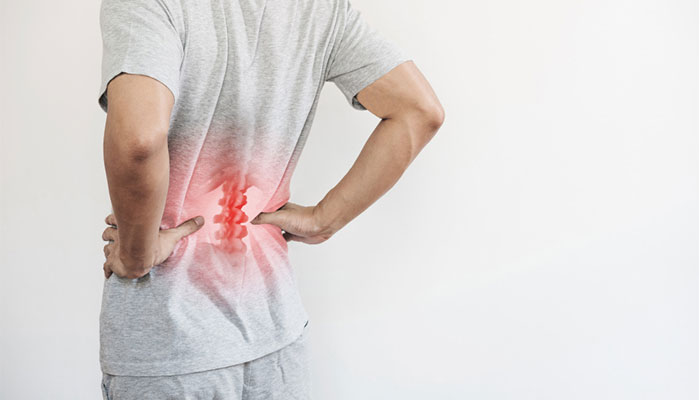Ankylosing spondylitis is a rare form of arthritis that is characterized by pain and stiffness in the spine. This is a lifelong condition that typically begins in the lower back and can spread to the neck or cause damage to joints in other areas of the body. In severe cases, the spine may be hunched.
Signs and Symptoms of Ankylosing Spondylitis
- Lower back pain and stiffness
- Hip pain
- Joint pain
- Neck pain
- Difficulty breathing
- Fatigue
- Loss of appetite
- Unexplained weight loss
- Abdominal pain
- Diarrhea
- Skin rash
- Vision problems
Causes of Ankylosing Spondylitis
The exact cause of ankylosing spondylitis is not fully understood, but it is believed to be influenced by a combination of genetic, environmental, and immunological factors.
Understanding Ankylosing Spondylitis in Ayurveda
In Ayurveda, ankylosing spondylitis is believed to result from an imbalance in the body’s doshas, particularly aggravated Vata and Pitta. This imbalance is often triggered by poor dietary habits, a sedentary lifestyle, and improper digestion. The accumulation of Ama (toxins) in the body can further aggravate the condition. Additionally, factors like exposure to cold and damp environments may worsen ankylosing spondylitis.
Treatment and Management
Treatment for ankylosing spondylitis aims to manage symptoms and slow disease progression. It typically includes medications like nonsteroidal anti-inflammatory drugs (NSAIDs), disease-modifying antirheumatic drugs (DMARDs), and biologics to reduce inflammation. Physical therapy, exercise, and lifestyle adjustments help improve mobility.
Care offered by SGP’s PSA has been demonstrated to be effective in alleviating symptoms and enhancing the quality of life for patients with ankylosing spondylitis. The primary focus of care delivered by the PSA is to manage symptoms, address emotional and psychological distress, and improve overall comfort.
FAQs about Ankylosing Spondylitis
-
Ankylosing spondylitis typically appears in adolescents and young adults. It is most commonly diagnosed before the age of 45. Men are two to three times more likely to experience ankylosing spondylitis than women.
-
Yes, smoking has a negative impact on ankylosing spondylitis. Smoking can lead to an increase in inflammation, as well as decrease the response to treatment.
-
For individuals suffering from severe hip arthritis, total hip replacement surgery is the preferred option. In rare cases, spinal surgery may be necessary to address excessive neck deformities or for low-trauma fractures.
-
Lifestyle modifications can enhance the quality of life in ankylosing spondylitis patients by promoting flexibility and reducing pain. Regular exercise, maintaining a healthy weight, and managing stress can improve mobility and overall well-being.
-
Yes, physical activity is encouraged, but it should be tailored to individual capabilities and limitations. Low-impact exercises like swimming and yoga can be beneficial, and consultation with a healthcare professional is advised before starting new activities.






